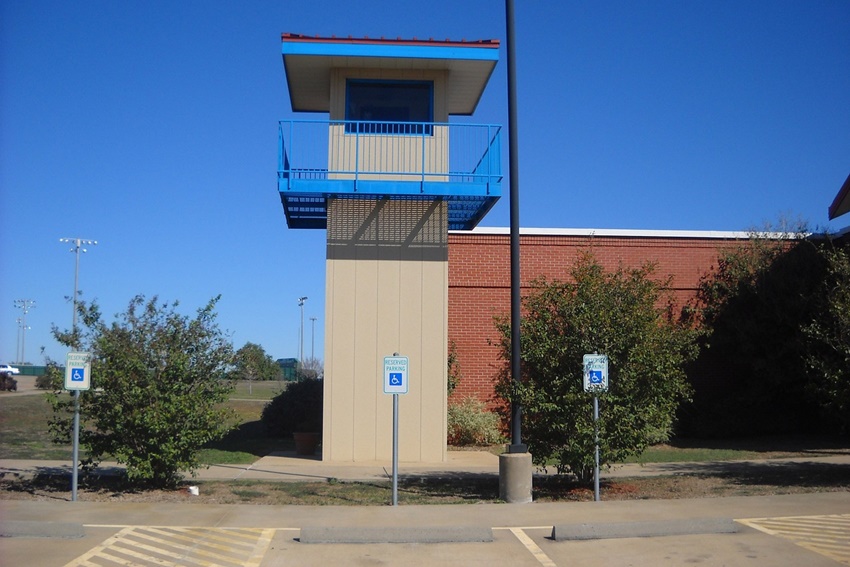Arapahoe County Bail Bond Information
What You Can Expect When a Loved One is in Jail in Arapahoe CountyHaving a loved one in jail can be stressful, at Tayler Made Bail Bonding we are here to help you get your family or friends out of jail fast. If you have a loved one in Arapahoe County, we have provided you a guide to everything you might need to know.
This includes the Municipal Courts of Aurora, Bennett, Centennial, Columbine Valley, Englewood, Glendale, Greenwood Village, Littleton, and Sheridan.
Arapahoe County Bail Bond Information
Every person arrested in Arapahoe County is charged a non-refundable $10.00 cash-only bond fee and a $30.00 booking fee if that individual goes to jail. Beware that other municipal and county bond fees may be added depending on the location you were arrested.
Bonds can be posted at the Arapahoe County Detention Facility 24 hours a day; however, the judge might order Pretrial Services which allows the court to set specific recommendation and requirements to the defendant concerning conditions of release. If these requirements are recommended it will delay the bonding process up to 24 hours. The facility does accept certified bank checks and money orders for bond payments.
Once bond is posted the average release time is generally 2-6 hours.
To determine an inmate's bond type and amount, call 720-874-3500 or visit the Inmate Lookup page.

Arapahoe County Visitation
If you have a loved one in Arapahoe County Jail and you would like to visit them, you must first be preapproved and schedule your visit 48 hours in advanced. You can do this by calling 303-795-4524 or by using the automated Inmate Visitation System. Please note that before calling you will need to know the inmates ID number, if you do not have this you can call 720-874-3500.
Each visit lasts 30 minutes and is done in the facility using a video chat system. For more information on visitation times and rules click here.
Arapahoe County - Putting Funds in a Commissary Account
For many inmates being in jail is hard enough, one way to help them get through this trying time is to deposit money into their commissary account. At Arapahoe County Detention Facility they offer four different ways of depositing money into your loved ones account. For each option you will need the full name and date of birth of the inmate or their jail identification number.
Putting Funds in Account
For both the online and telephone deposit options are available 24/7 and accept MasterCard and Visa Credit cards as well as most debit cards. These funds will be available to your loved one within 24 hours. Keep in mind you will be charged a convenience fee for either method.
To make an online deposit visit the TouchPay portal.
To make a telephone deposit call (866) 232-1899 and use the Arapahoe County Detention Facility Site ID of # 280112.
In-Person or By Mail
You are also able to mail any money orders or cashiers checks to the facility by sending it to:
ACSO Detention Facility – Accounts7375 South Potomac Street
Centennial, CO 80112
Gifts
Another option the Arapahoe County Facility offers is the ability to send your loved one a gift. To do so visit the ICareGifts website and make a purchase of no more than $75.00 dollars and it will be delivered to your loved one on the following Wednesday.
Helpful Bail Bond Links
Arapahoe County History
Arapahoe County is currently one of the most populated counties in Colorado with an estimated population of 572,003 and a majority of the residents located in Aurora. The county currently spans 805 square miles and encompasses the cities of Centennial, Cherry Hills Village, Foxfield, Columbine Valley, Englewood, Glendale, Byers, Castlewood, Greenwood Village, Deer Trail, and Sheridan.
Arapahoe Counties history dates back to 1855 when it was established as Colorado’s first county, at that point almost half of the entire area that is now Colorado was classified as Arapahoe county of the Kansas territory. Then in 1861 when Kansas became a state Arapahoe county was than named as one of the 17 original counties.
The word Arapahoe means “tattooed on the chest” which was a common practice of the Arapahoe Indians that previously lived on this land.
Challenges Faced in Arapahoe County
Arapahoe County Sheriff’s department has had several challenges over the years including dealing with the tragedies of Columbine High School Shooting where 13 people where killed in 1999, the Aurora Theater Shooting of 2012 where 12 people where killed and the most recent Arapahoe School shooting in 2013 where 2 students where killed. This has put additional strain on the sheriff’s department to help enhance all School shooting regulations in order to prevent tragedies like this from happening in the future.
The most notable stride this county has contributed includes introducing the Claire David Public Safety Act to congress in 2017. This act gives victims of school shootings the ability to sue the school if they did not provide “reasonable” care that would protect students and staff from “reasonably foreseeable acts of violence”

Can Bail Bond Amounts Be Negotiated?
The Founding Fathers incorporated many common law principles, traditions and concepts into the legal structure of the new nation. So it was no real surprise that bail - which had been a common law staple for nearly a thousand years - wound up being included in the Bill of Rights where the 8th Amendment states unequivocally that “Excessive bail shall not be required...” Today, there is a robust debate underway over just what constitutes “excessive bail”. With more than a few people wondering if the wording of the 8th amendment leaves room for bail amounts to be negotiated.
Can You Negotiate With an Arapahoe County Bail Agent?
If the constitution prohibits the use of excessive bail as a means to deny someone their freedom then certainly bail amounts should be open to negotiation. Because what’s reasonable for one person may well be excessive for someone else. Right?
Well, as with many things having to do with the justice system, bail bonding isn’t all that black and white. It might be possible to petition for a reduction in bail, but it’s not the bail agent who decides. It’s the court. And they look at a number of factors when setting bail amounts, including:
- The nature of the charges - A person charged with first degree murder stands little if any chance of having their bail reduced. Same if someone is charged with plotting or carrying out a terrorist attack. If however, a person is arrested for driving under the influence or for possession of a small amount of marijuana or for shoplifting and they don’t have any prior convictions (see the next item on this list), they stand a decent chance of having their bail reduced if they can demonstrate financial hardship.
- The defendant’s criminal history (if any) - The court will certainly take into account the defendant’s criminal history. If they have a rap sheet a yard long there is very little chance the court will grant a reduction in bail. On the other hand if this is the person’s first arrest and the charge is not too serious they may be able to have their bail reduced.
- The defendant’s financial situation - This is where the words “reasonable” and “excessive” really come into play. If the defendant is not accused of a violent crime, does not have a long criminal record and can prove legitimate financial hardship they may have their bail reduced. However, if they have no money because of a drug or gambling addiction the court may decide their financial hardship is self-imposed and refuse to reduce bail.
- The likelihood they will flee - If a person has a history of skipping out on bail bonds they stand zero chance of getting their bail reduced. Likewise, if they committed a crime while passing through Jefferson County, Arapahoe County or Denver County they also stand little chance of seeing a reduction in their bail amount. If, however, the person has a clean record, has children in local schools and has held the same job in town for years they may be given some bail relief.
Once the court has weighed all these factors and any others it feels may be relevant the judge will decide whether or not to reduce bail. If the person is not considered a danger to the community, has ties in the area, has a clean record and can demonstrate that the requested bail would be burdensome a reduction may be granted.
The “Bail is Unfair” Myth
There are a lot of people who claim that bail bonds should be eliminated. To bolster their argument, they point to the number of people of limited financial means in jail awaiting trial who are only there because they couldn’t afford bail. However, these arguments almost never mention that many of these people are repeat offenders and/or those who have jumped bail in the past. This means that the court is finished being lenient with them. Defendants who may have convinced the judge to reduce bail the first time around are unlikely to recieve the same treatment for a 2nd, 3rd or 4th offense.
Can the Court Increase Bail?
One thing a lot of people are unaware of is that the court can, if it decides it’s appropriate, actually increase the amount of bail. And in some cases the judge will deny bail altogether. For instance, Gary Ridgway, the infamous “Green River Killer” was denied bail after being arrested because he was deemed both a high flight risk and a clear danger to the community. While that’s an extreme example the fact is that it is not uncommon for the court to increase or deny bail in some circumstances.
The Bottom Line
Those who see some wiggle room in the wording of the 8th Amendment are correct. It has long been established that judges have the right to set, increase, decrease or deny bail as they see fit. Therefore, if you have been arrested and feel that bail has been set too high, your attorney can petition the court to reduce or even eliminate bail and allow you to be released on your own recognizance. It's important to keep these three things in mind:
- The more convictions you have, the less likely you are to obtain a reduction in bail.
- The nature of the crime you are accused of will also play a part in the decision about your bail amount.
- You will need to demonstrate financial hardship for a bail reduction to be considered.
We'll Move Fast To Get Them Out
We know how stressful it can be when a friend or loved one is awaiting bail.
We move quickly and efficiently to ensure the fastest possible release.
Contact Info
Tayler Made Bail Bonding is available 24 hours a day and 7 days a week.
(303) 623-0399email@taylermadebailbonding.com
3595 South Teller Street
Suite 300A
Lakewood, CO 80235
@TaylerMadeBail

